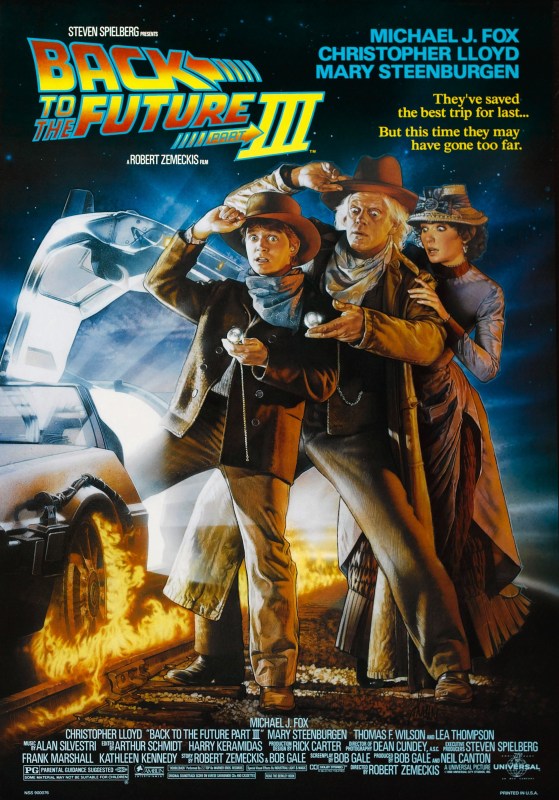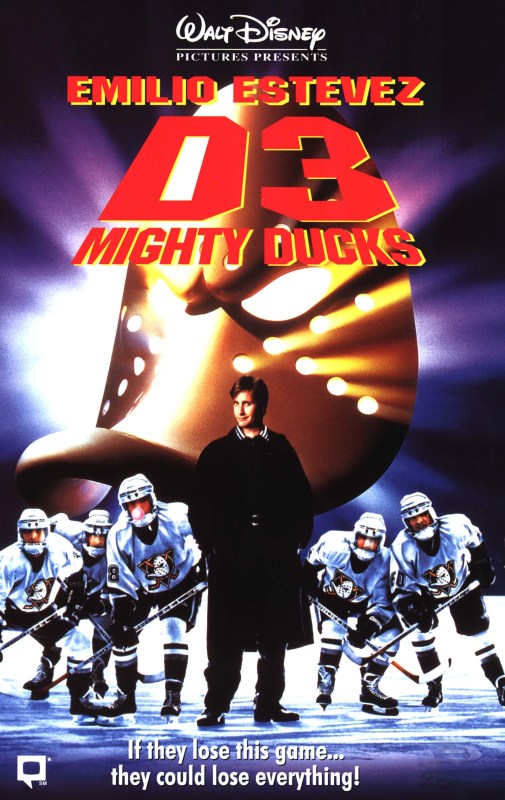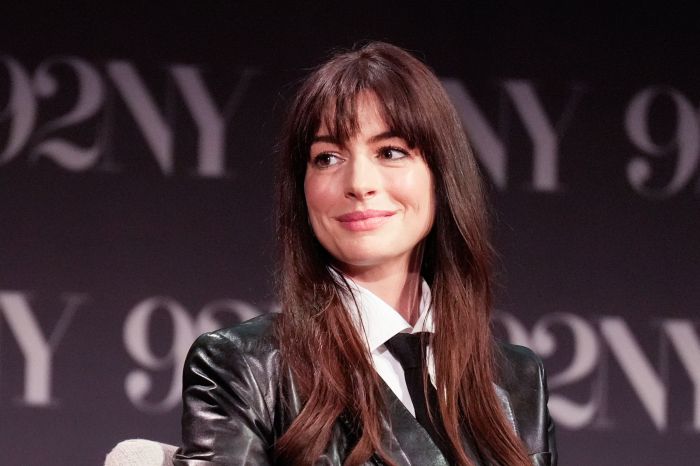It's hard to believe it's been 35 years since the first installment in the "Back to the Future" franchise debuted in theaters! In honor of the film's big milestone on July 3, 2020, Wonderwall.com is taking a look back at more of our all-time favorite movie trilogies. But first, let's celebrate "Back to the Future"… Michael J. Fox, then the lead on TV's "Family Ties," became a bona fide movie star thanks to the success of 1985's "Back to the Future," one of the most beloved sci-fi films of all time. He went on to star in two equally successful (if not quite as critically acclaimed) sequels: 1989's "Back to the Future Part II," which earned an Oscar nomination for best visual effects, and 1990's "Back to the Future Part III." The original installment in the Robert Zemeckis-directed trilogy, by the way, won the Oscar for best sound effects editing and earned three more Academy Award nominations. Keep reading for more…
RELATED: "Back to the Future" cast: How their lives have changed
"The Lord of the Rings: The Fellowship of the Ring," which scored four Oscars and nine more Academy Award nominations, opened in theaters in 2001, officially launching what was considered at the time to be the most ambitious movie trilogy in cinema history. "The Two Towers" — the magnum opus of the Peter Jackson-directed series of films — arrived in 2002 and scored two Oscars, plus four more Academy Award nominations. Finally, "The Return of the King" opened in theaters in 2003. The final chapter in the trilogy won all 11 Oscars for which it was nominated, tying "Ben-Hur" and "Titanic" for most awards won by a single film.
Keanu Reeves returned as our favorite dog-loving former assassin in "John Wick: Chapter 3 – Parabellum" in 2019. The flick was released that May and made over $326 million worldwide, becoming the highest-grossing film in the franchise.
RELATED: Stars who've played the same superhero: How they compare
Christian Bale suited up to play the complicated protector of Gotham City in 2005's "Batman Begins." The film, which was the first installment in what would become known as Christopher Nolan's "Dark Knight" trilogy, was a critical and commercial success. In addition to scoring an Oscar nomination for best cinematography, it grossed $48 million in its opening weekend alone. In 2008, the trilogy's second installment — and arguably its most famous, "The Dark Knight" — was released and later recognized as the 45th-highest-grossing film of all time. It earned two Academy Awards including a posthumous best supporting actor Oscar for its Joker, Heath Ledger. The trilogy wrapped up with 2012's "The Dark Knight Rises," which grossed more than $1.08 billion, making it the 24th-highest-grossing-film of all time.
"The Godfather" debuted to raves in 1972 and went on to win the Oscar for best picture, best adapted screenplay and best lead actor for Marlon Brando for his work as mob boss Don Vito Corleone. The drama also earned eight more Academy Award nominations, leaving big shoes to fill for 1974's "The Godfather: Part II." The first sequel didn't disappoint, earning six Oscars — including best picture, best director and best supporting actor for Robert De Niro as a younger version of Vito — as well as five more Academy Award nominations. "The Godfather Part III," which debuted in 1990, is considered the weak link in the Francis Ford Coppola-directed trilogy … it only scored seven Oscar nominations.
It all started in 1977 with "Star Wars: Episode IV – A New Hope." Three years later, the crown jewel in the expansive "Star Wars" franchise arrived: "Episode V – The Empire Strikes Back." The original trilogy — which has since launched a prequel trilogy, a sequel trilogy, several standalone films and a handful of animated series — concluded with 1983's "Star Wars: Episode VI – Return of the Jedi."
Will Smith and Martin Lawrence reunited for a second time to reprise their roles as buddy detectives 25 years after the first "Bad Boys" film hit theaters. The third installment, "Bad Boys for Life," debuted in 2020 and received mostly positive reviews. The film proved to be a major financial success — it became the highest grossing installment in the series, earning $419 million worldwide against a $90 million budget!
We'd be remiss if we didn't mention that other beloved Keanu Reeves trilogy. After "The Matrix" debuted in 1999 and claimed four Oscars, the Wachowskis delivered two 2003 sequels: "The Matrix Reloaded," which debuted in May, and "The Matrix Revolutions," which arrived in November. Though the second and third installments in the trilogy couldn't fill the original's shoes, audiences still showed up in droves to experience the sci-fi series' epic conclusion.
The "Despicable Me" trilogy started with a bang in 2010. Gru and his minions were a huge hit at the box office and earned a Golden Globe nomination for best animated feature. "Despicable Me 2" debuted in 2013 and earned two Oscar nominations: best animated feature and best original song for the Pharrell Williams chart-topper "Happy." Finally, "Despicable Me 3″ arrived in 2017 — and made more than a billion dollars at the box office. The animated trilogy also launched a spinoff, 2015's Minions," which is getting a sequel in 2020. And get this: Once "Minions" — which also banked more than $1 billion at the box office — is added into the mix, "Despicable Me" is the highest grossing animated film franchise of all time!
Who could've imagined when "Iron Man" debuted in 2008 that the action flick would revitalize the superhero genre, spawn two sequels and launch the most successful film franchise in the history of cinema? Two years after Robert Downey Jr. first brought Tony Stark to life, he returned as the titular Avenger in 2010's "Iron Man 2." The third installment in the original Marvel trilogy, "Iron Man 3," arrived in 2013. Though the two sequels aren't quite as good as their forbearer, they're still two of the most beloved movies in the Marvel Cinematic Universe — and that's really saying something! Since then, Captain America and Thor have also scored their own trilogies.
The "Meet the Parents" trilogy earned $1.157 billion at the global box office, making it the highest grossing comedy film franchise of all time. It started with 2000's "Meet the Parents," which is actually an Oscar-nominated film. (It earned an Academy Award nomination for best original song.) "Meet the Fockers" arrived in 2004, and "Little Fockers" came along in 2010.
The beloved sci-fi comedy "Men in Black" was the second-highest grossing film of 1997 (after "Titanic") and scored an Oscar for best makeup, as well as two more Academy Award nominations. So is it any wonder director Barry Sonnenfeld attempted to recreate the magic with two sequels? "Men in Black II" debuted in 2002 and "Men in Black III" arrived almost exactly a decade later. The subsequent installments in the series might not have thrilled critics, but fans of the original still turned up in droves to catch Will Smith's Agent J on the big screen. The trilogy is so popular, "Thor: Ragnarok" co-stars Chris Hemsworth and Tessa Thompson are teaming up for a spinoff, "Men in Black: International," which debuts in June 2019.
The most romantic series of films! The Richard Linklater-directed "Before" trilogy, which traces one couple's love story over the course of three decades, kicked off in 1995 with "Before Sunrise." Nine years later, "Before Sunset" opened in theaters. The sequel earned an Oscar nomination for best adapted screenplay and paved the way for 2013's "Before Midnight" to earn a nomination in the same category nearly a decade later.
The original "Evil Dead" trilogy starring B-movie legend Bruce Campbell consisted of 1981's "The Evil Dead," 1987's "Evil Dead II" and 1992's "Army of Darkness." The series' first installment was considered a sleeper hit, grossing $2.4 million in the United States against a budget of about $350,000 to $400,000, while the second and third installments grossed $6 million and $4.4 million in the States, respectively. The Sam Raimi-directed supernatural-horror franchise was rebooted in 2013 with the release of the film "Evil Dead" — it also inspired a TV series, "Ash vs Evil Dead," that ran from 2015 to 2018. In June 2020, it was announced that Lee Cronin will be directing a fifth installment, "Evil Dead Rise."
When the "Ocean's Eleven" reboot debuted in 2001, it was a huge hit — thanks in part to its all-star cast led by George Clooney as the titular thief Dany Ocean. After that, director Steven Soderbergh churned out two thrill-packed sequels: 2004's "Ocean's Twelve" and 2007's "Ocean's Thirteen." The widely popular trilogy even spawned a standalone spinoff: 2018's "Ocean's 8," which features a predominantly female cast and centers around Danny Ocean's sister, Debbie Ocean (Sandra Bullock).
Before there was the Marvel Cinematic Universe, there was the Sam Raimi-directed "Spider-Man" trilogy starring Tobey Maguire, which kicked off in 2002. It's still one of the highest grossing movie franchises of all time. (To put things into perspective, the first film, which earned two Oscar nominations, and the third film in the series, which arrived in 2007, both earned more money at the box office than the lauded MCU reboot, 2017's "Spider-Man: Homecoming.") Meanwhile, "Spider-Man 2," which debuted in 2004, won an Oscar for best visual effects and earned two more Academy Award nominations.
Arguably the funniest movie trilogy around kicked off with 2009's "The Hangover," which earned a Golden Globe nomination for best motion picture comedy or musical. The film was such a huge success, it spawned two equally hilarious sequels: 2011's "The Hangover Part II" and 2013's "The Hangover Part III."
If you grew up during the '90s, you were probably a fan of "The Mighty Ducks," which opened in theaters in 1992 and charmed audiences across the country with its tale of underage underdog hockey players. "D2: The Mighty Ducks" arrived in 1994 and "D3: The Mighty Ducks" opened in theaters in 1996.
The "Planet of the Apes" franchise spans all the way back to 1968 and includes nine films and two TV series. But the rebooted prequel trilogy, which kicked off with 2011's "Rise of the Planet of the Apes," is the highlight, scoring with both critics and at the box office. "Dawn of the Planet of the Apes" arrived in 2014 and performed even better at the box office, as did "War for the Planet of the Apes," which opened in theaters in 2017. All three films earned Oscar nominations for best visual effects.
"Austin Powers: International Man of Mystery" debuted in 1997 and immediately won fans around the globe with its zany sense of humor and insanely quotable jokes. Its two sequels — 1999's "Austin Powers: The Spy Who Shagged Me," which earned an Oscar nomination for best makeup, and 2002's "Austin Powers in Goldmember" — might not have impressed the critics, but the trilogy's rabid fan base sent writer-star Mike Myers laughing all the way to the bank! In late 2018, he hinted that a fourth installment in the franchise could be on its way.
We refuse to acknowledge 2008's "Indiana Jones and the Kingdom of the Crystal Skull," so as far as we're concerned, the "Indiana Jones" franchise is a trilogy. The series kicked off in 1981 with "Indiana Jones and the Raiders of the Lost Ark," which won five Oscars, including a special achievement award for sound effects editing. The action-adventure flick also earned four more Academy Award nominations, including best picture and best director for Steven Spielberg. The first sequel, 1984's "Indiana Jones and the Temple of Doom," didn't perform quite as well with the Academy, claiming the Oscar for best visual effects and scoring just one other nomination (best original score). Finally, "Indiana Jones and the Last Crusade" arrived in 1989 and earned one Oscar, plus two more Academy Award nominations.
Critics might have loathed the "Blade" trilogy, but that didn't stop fans of Wesley Snipes' titular vampire hunter from flocking to theaters for all three installments in the franchise, which kicked off in 1998. The series took a dark turn with 2002's "Blade II" before embracing camp with 2004's "Blade: Trinity," which is noteworthy for its inclusion of a shirtless pre-fame Ryan Reynolds. Whatever critics might have thought, fans of the cult franchise, which also spawned a 2006 Spike TV series, refused to be deterred.























